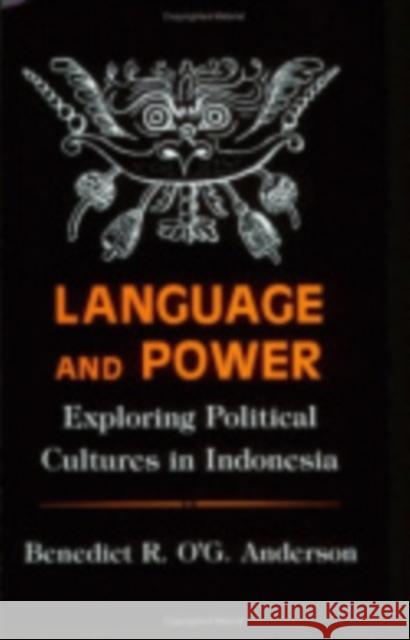Language and Power » książka
Language and Power
ISBN-13: 9780801497582 / Angielski / Miękka / 1990 / 352 str.
Language and Power
ISBN-13: 9780801497582 / Angielski / Miękka / 1990 / 352 str.
(netto: 156,80 VAT: 5%)
Najniższa cena z 30 dni: 154,50
ok. 30 dni roboczych.
Darmowa dostawa!
In this lively book, Benedict R. O'G Anderson explores the cultural and political contradictions that have arisen from two critical facts in Indonesian history that while the Indonesian nation is young, the Indonesian state is ancient, originating in the early seventeenth-century Dutch conquests; and that contemporary politics are conducted in a new language, Bahasa Indonesia, by peoples (especially the Javanese) whose cultures are rooted in medieval times. Analyzing a spectrum of examples from classical poetry to public monuments and cartoons, Anderson deepens our understanding of the interaction between modern and traditional notions of power, the meditation of power by language, and the development of national consciousness.This volume brings together eight of Anderson's most influential essays written over the past two decades. Most of the essays address aspects of Javanese political culture from the early nineteenth century, when the Javanese did not yet have words for politics, colonialism, society, or class, through the early nationalism of the 1900s, to the era of independence after World War II, when deep internal tensions exploded into large-scale massacres. In the first group of essays Anderson considers how power was imagined in traditional Javanese society, and how these imaginings shaped Indonesia's modern politics. Other essays focus on the significance of the incongruences between the egalitarian, ironizing national language through which modern Indonesia has been imagined and the powerful influence of the hierarchical, authoritarian Javanese official culture. Finally, two essays on consciousness illuminate the crucial eras before and after the rise of Indonesia's nationalist movement. One reflects on Javanese intellectuals' phantasmagoric efforts to keep imagining "Java" as the island was overrun by colonial capitalism and absorbed into the huge, heterogeneous Netherlands East Indies; the second traces the transition from old culture to new nation through the autobiography of an eminent Javanese first-generation nationalist politician."











